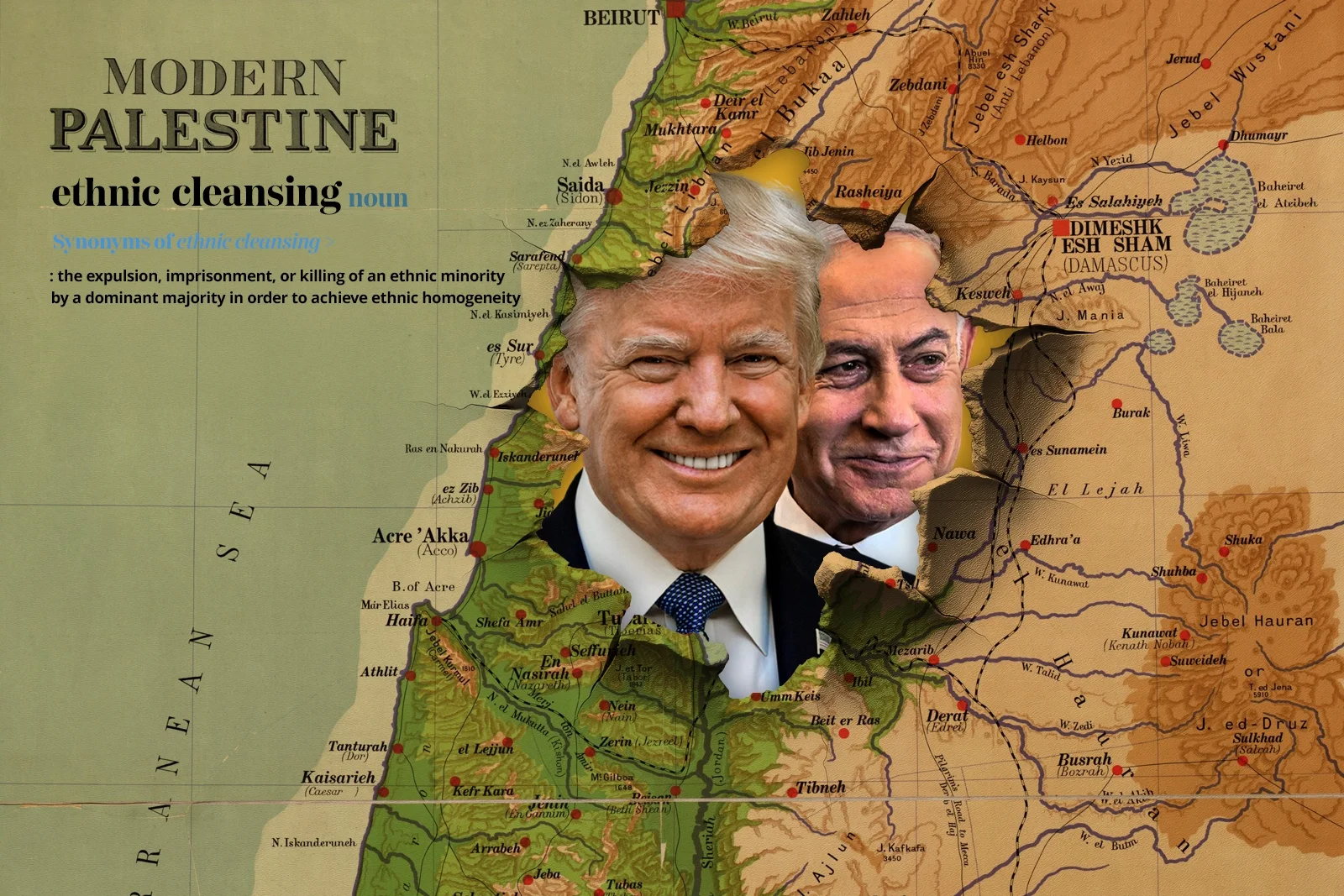
Trump’s Ethnic Cleansing is a Hard Sell
President Donald Trump is once again attempting to upend long-standing understandings in the Middle East—this time, by dismantling the very concept of a Palestinian homeland in Gaza.
For decades, it has been widely accepted that Gaza would be an integral part of any future Palestinian state. A Palestinian representative already sits at the United Nations, and international consensus has largely aligned around the idea that Gaza is part of Palestine’s future. But Trump, ever eager to break from precedent, appears to have a different vision—one that involves the forced displacement of Palestinians and the effective erasure of their territorial claims.
Speaking alongside Jordan’s King Abdullah II in the Oval Office on Tuesday, Trump reiterated his position that Palestinians should be expelled from Gaza and resettled in neighboring countries such as Jordan and Egypt. His remarks echoed a similarly shocking statement made earlier this month during a press conference with Israeli Prime Minister Benjamin Netanyahu. Then, Trump openly suggested deporting Palestinians, resettling them elsewhere, and deploying U.S. troops to Gaza in their place.
“We should go to other countries of interest with humanitarian hearts, and there are many of them that want to do this and build various domains that will ultimately be occupied by the million Palestinians living in Gaza, ending the death and destruction and frankly bad luck,” Trump declared. “This can be paid for by neighboring countries of great wealth. It could be one, two, three, four, five, seven, eight, twelve. It could be numerous sites, or it could be one large site. But the people will be able to live in comfort and peace, and we’ll get – we’ll make sure something really spectacular is done,” he continued. “The U.S. will take over the Gaza Strip, and we will do a job with it too.”
The international response to Trump’s remarks has ranged from stunned disbelief to deep alarm. Is this just another instance of Trumpian grandstanding? Or does it signal a fundamental break with decades of U.S. policy—one that could reshape the region in ways previously unthinkable?
For Palestinians, the implications are dire. Trump’s rhetoric evokes memories of the Nakba, the mass displacement of 750,000 Palestinians in 1948 when entire communities were uprooted and rendered stateless. The prospect of history repeating itself in the form of another forced expulsion is both terrifying and legally untenable. Any attempt to displace Palestinians from Gaza en masse would violate international law and likely spark a geopolitical crisis.
Trump’s broader approach to the Israeli-Palestinian conflict has been unmistakably pro-Israel, continuing policies from his first term. His administration unilaterally recognized Israel’s annexation of the Golan Heights, moved the U.S. Embassy from Tel Aviv to Jerusalem, and declared Jerusalem Israel’s exclusive capital—moves that delighted Israel’s right-wing government while enraging Palestinians and much of the Arab world.
As if to further underscore his disregard for Palestinian rights, Trump announced his proposed ethnic cleansing scheme mere hours after signing an executive order withdrawing the U.S. from the UN Human Rights Council (UNHRC) and cutting funding for the UN Relief and Works Agency for Palestinian Refugees (UNRWA).
Unsurprisingly, Trump insists that his plan has widespread support. “Everybody I’ve spoken to loves the idea of the United States owning that piece of land,” he claimed, adding, “I don’t want to be cute. I don’t want to be a wise guy. But the Riviera of the Middle East, this could be something that could be so–this could be so magnificent.”
But among the voices he seems to have ignored are those of Arab leaders. Jordan, Egypt, and Saudi Arabia have firmly opposed his proposal, making it clear they will not participate in any forced resettlement of Palestinians. With Trump now challenging Arab nations to come up with an alternative, the coming weeks could prove decisive. The future of Palestine may hinge on whether Jordan, Egypt, Saudi Arabia, and the broader Arab League can present a compelling counterproposal.
The question remains: Does Trump truly intend to commit what would amount to ethnic cleansing? Or is he merely employing a version of Nixon’s infamous “madman theory,” a strategy that sought to convince adversaries that the president was reckless enough to take extreme actions—in this case, to coerce Arab states into a diplomatic concession?
If Trump’s real ambition is to see his name in gold lettering on another luxury development, he should look elsewhere. Gaza is not up for sale. The Palestinian people are not real estate to be bought, sold, or forcibly relocated.
If Trump is serious about securing peace, he must abandon fantasies of territorial conquest and coercion. The world does not need another reckless plan for the Middle East—it needs solutions that respect human rights, international law, and the dignity of those most affected.
